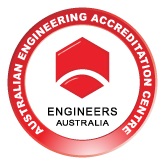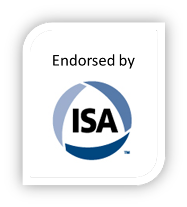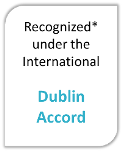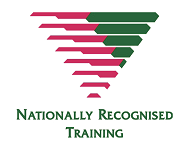- Course at a Glance
National Code - 52708WA
- Schedule Start Date: 1st March 2021
- Code: DIA
- Course Length: 18 Months

Join this interactive, LIVE ONLINE program, for 18 months part-time, to gain:
- Skills and know-how in the latest technologies in instrumentation, process control and industrial automation
- Guidance from industrial automation experts in the field with extensive experience, rather than from the clinical information gained from books and college
- Credibility as the local industrial automation expert in your firm
- Networking contacts in the industry
- Improved career prospects and income
- A world-class Advanced Diploma of Industrial Automation
Program Details
Overview
Gain strong underpinning knowledge and expertise in Industrial Automation covering a wide range of skills ranging from instrumentation, automation and process control, industrial data communications, process plant layout, project and financial management, and chemical engineering with a strong practical focus. Industrial Automation is an extremely
The EIT Advanced Diploma
Who Should Complete this Program
Anyone who wants to gain
-
Electrical Engineers and Electricians
-
Maintenance Engineers and Supervisors
-
Energy Management Consultants
-
Automation and Process Engineers
-
Design Engineers
-
Project Managers
-
Instrument Fitters and Instrumentation Engineers
-
Consulting Engineers
-
Production Managers
-
Chemical and Mechanical Engineers
-
Instrument and Process Control Technicians
Even those who are highly experienced in industrial automation may find it useful to attend some of the topics to gain know-how in a very concentrated but practical format.
Program Structure
Program Structure
The program is composed of 72 topics within 21 modules which run through seven (7) threads to provide you with maximum practical coverage in the field of industrial automation:
-
Instrumentation, Automation and Process Control
-
Electrical Engineering
-
Electronics
-
Industrial Data Communications and Networking
-
Mechanical Engineering
-
Project Management
-
Chemical Engineering
The course is
| Module Number | Module Name | Duration |
|---|---|---|
| Practical Instrumentation for Automation and Process Control | 6 Weeks | |
| 2 |
Practical Fundamentals of Chemical Engineering (for Non-Chemical Engineers) |
2 Weeks |
| 3 | 2 Weeks | |
| 4 | 3 Weeks | |
| 5 | 4 Weeks | |
| 6 | 6 Weeks | |
| 7 | 3 Weeks | |
| 8 |
Practical Tuning of Industrial Control Loops for Engineers and Technicians |
3 Weeks |
| 9 | 4 Weeks | |
| 10 |
Practical Programmable Logic Controllers (PLCs) for Automation and Process Control |
3 Weeks |
| 11 |
Practical Advanced Process Control for Engineers and Technicians |
3 Weeks |
| 12 |
Practical Boiler Control and Instrumentation for Engineers and Technicians |
2 Weeks |
| 13 | 4 Weeks | |
| 14 | 4 Weeks | |
| 15 |
Practical HAZOPS (Hazard and Operability Studies) for Engineers and Technicians |
4 Weeks |
| 16 | 2 Weeks | |
| 17 | 3 Weeks | |
| 18 | Practical Radio Telemetry Systems for Industry | 3 Weeks |
| 19 | Practical SCADA Systems for Industry | 3 Weeks |
| 20 | Motor Protection, Control and Maintenance Technologies | 4 Weeks |
| 21 | Practical Power Distribution for Engineers and Technicians | 4 Weeks |
Accreditation
Job Outcomes, International Recognition and Professional Membership:
The Advanced Diploma of Industrial Automation qualification is recognized by Engineers Australia and (through the Dublin Accord) by leading professional associations and societies in Australia, Canada, Ireland, Korea, New Zealand, South Africa, United Kingdom and the United States. The Dublin Accord is an agreement for the international recognition of Engineering Technician qualifications.
For example,

This professional recognition greatly improves the global mobility of
You will be qualified to find employment as an Engineering Associate in public and private industry including transportation, manufacturing, process, construction, resource, energy and
For more information about accreditation, please visit this webpage.
Entry Requirements
This advanced diploma is an accelerated, practical, work-oriented course. It is designed for engineers and technicians who have some background in the field. This includes those who have technical or ‘trade’ qualifications who want to move to the next career step, those with substantial relevant work experience who need to formalise and enhance their achievements, and those with higher level qualifications in a related field who wish to develop specialist knowledge.
In order to maximise the benefit of this course, students should have at least a tertiary qualification in Engineering and some work experience in Engineering (preferably Electrical, Mechanical or Chemical). Practical work experience in related areas of Engineering would also assist with the mastering of the advanced diploma material. However, without this background, but with some technical knowledge, some counselling and the necessary pre-course learning materials, it is possible to be brought up to the appropriate level. It would not be suitable for a student with no relevant work experience.
English language competency is also required. Students are required to understand spoken and written English and to communicate in English verbally and in writing.
Learning and Teaching
Benefits of Online Learning to Students
Cost effectiv e : no travel or accommodation necessary- Interactive: live, interactive sessions let you communicate with your instructor and fellow students
- Flexible: short interactive sessions over the Internet which you can attend from your home or office. Learn while you earn!
- Practical: perform exercises by remotely accessing our labs and simulation software
- Expert instructors: instructors have extensive industry experience; they are not just 'academics'
- No geographical limits: learn from any location, all you need is an Internet connection
- Constant support: from your instructor(s) and a dedicated Learning Support Officer for the complete duration of the course
- International insight: interact and network with participants from around the globe and gain valuable insight into
international practice
Benefits of Online Learning to Employers
- Lower training costs: no travel or accommodation necessary
- Less downtime: short webinars (60-90 minutes) and flexible training methods means less time away from work
- Retain employees: keep staff who may be considering a qualification as
full time study - Increase efficiency: improve your engineering or technical employees’ skills and knowledge
- International insight: students will have access to internationally based professional instructors and students
How Does it Work?
EIT Online Learning courses involve a combination of live, interactive sessions over the Internet with a professional instructor, set readings, and assignments. The courses include simulation software and remote laboratory applications to let you put
Practical Exercises and Remote Laboratories
As part of the groundbreaking new way of teaching, our online engineering courses use a series of remote laboratories (labs) and simulation software, to facilitate your learning and to test the knowledge you gain during your course. These involve complete working labs set up at various locations of the world into which you will be able to log to and proceed through the various
These will be supplemented by simulation software, running either remotely or on your computer, to ensure you gain the requisite hands-on experience. No one can learn much solely from lectures, the labs and simulation software are designed to increase the absorption of the materials and to give you a practical orientation of the learning experience. All this will give you a solid, practical exposure to the key principles covered and will ensure that you obtain maximum benefit from your course.
Brochure




